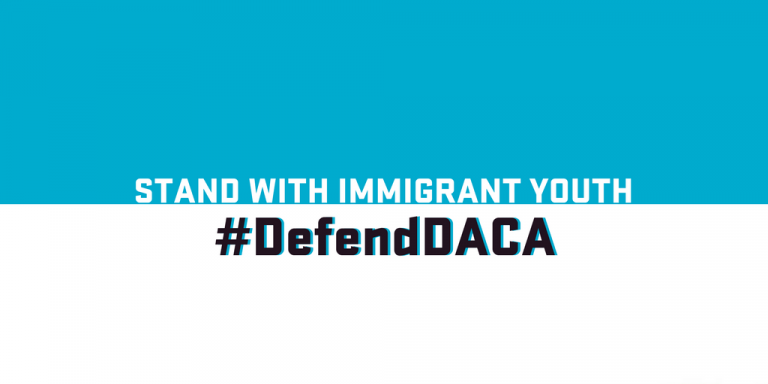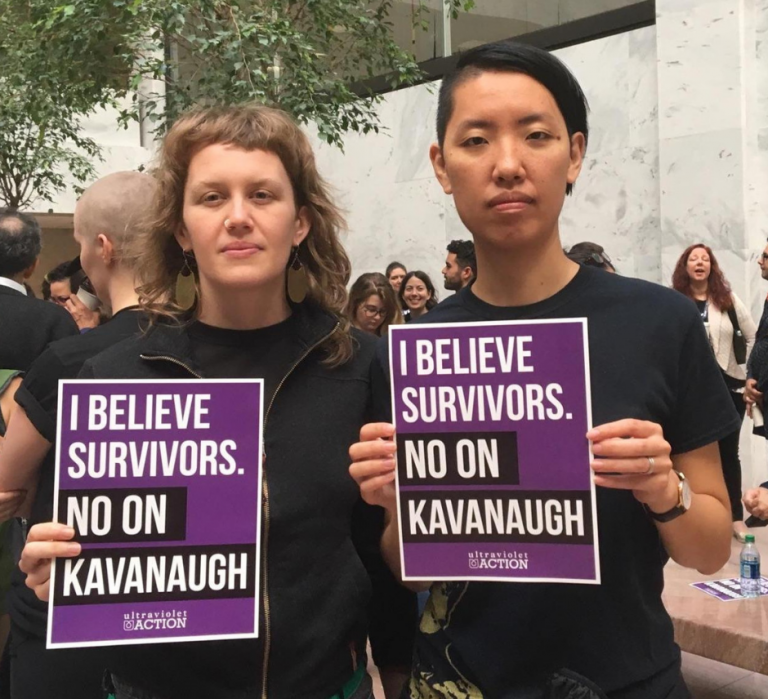What Disability Justice Has to Offer Social Justice
Reposted from the GIFT Blog.
I attended my first workshop on disability justice facilitated by Mia Mingus and Stacey Milbern, two Korean queer women with disabilities, at the United States Social Forum in 2010. Sitting in a room with others wanting to talk about disability and ableism within a social justice framework was like coming home for me. During the presentation and dialogue, things that I had often wondered about started to make sense. Why are there so few people of color with disabilities and LGBTQI people with disabilities visible as activists in social justice movements? Why is there such a pattern of burnout in activist communities? What issues are we not discussing in social justice spaces that prevent us from supporting each other and encouraging ourselves and each other to practice self-care?
Disability justice is an emerging discourse, but one I feel is very important. I think disability justice has the potential to transform how we do social justice work towards greater inclusivity and sustainability.
Disability justice puts people of color and LGBTQI people with disabilities at the center of the conversation. It is a movement not just for rights for disabled people but about multiple forms of empowerment and liberation, sustainable systems of care and mutual support. According to Mia Mingus, “disability justice is a multi-issue political understanding of disability and ableism, moving away from a rights based equality model and beyond just access, to a framework that centers justice and wholeness for all disabled people and communities.”
Disability justice goes beyond disability rights. An analogy Stacey Milbern uses to describe the difference is the emergence of the environmental justice movement as a response to the mainstream environmental movement. Mainstream environmentalism focused on conservation of natural resources, but did not take into consideration how poor people and people of color experience a higher incidence of environmental hazard both in the US and internationally. The discourse of environmental justice emerged, challenging racism and classism inherent in environmental policy decisions. Similarly, disability justice asks the movement for disability rights to look beyond accessibility and services for people with disabilities to how issues such as race, class, gender and sexuality impact the experience of being disabled. It challenges those advocating for people with disabilities to build a more inclusive and justice-based movement.
I first began to think about disability during a period of my life in which I had debilitating symptoms of chronic fatigue that left me with very little energy and feeling very isolated. I learned a lot about myself during that time. My youthful sense of immortality and individualism came crashing to the ground. To recover, I had to change my entire life. I had to learn to ask for support. I had to learn self-care and how to make decisions about how I spent my energy and time that were more sustainable. I came to realize that the most important things in life were the people I was connected to and in being of service. Many years later I have slowly recovered much of my energy, but fortunately the transformations in how I see myself in relation to others and the world have not changed.
Another thing I realized during my years of chronic fatigue is that disability affects or will affect almost everyone. If we have the privilege of getting old we will likely experience the loss of many abilities to care for ourselves that many of us take for granted including feeding ourselves, bathing, driving, etc. Many people with disabilities do not currently have the privilege of acting as if their lives are independent in the above ways. Ableism depends on maintaining the myth that we can be self-sufficient if we are strong enough—the myth of independence. Disability justice proposes a framework for seeing oneself that is more relational and transformative-interdependence, in which other people are necessary for physical, emotional and community health and well-being. Interdependency values our connection to others and communities.
There is currently not much formal funding flowing towards disability justice work. Disability funding typically is in the realm of research, charity and services. There is a need to build the capacity of diverse disabled leaders who can advocate for inclusivity in disability-focused organizations and recruit funding for disability justice.
Mia Mingus points out that much if not most disability justice work is not done through 501(c)3 organizations. This is because activism itself looks different in the context of disability. Just as women get paid less than men for the same work, as activism of people of color and poor people can be devalued compared to other forms of activism in social justice and non-profit spaces, the work people with disabilities do building supportive inclusive communities that address injustices and raise resources is often unrecognizable to funders and the non-profit world. Opportunities to fund disability justice thus tend to be less formal but no less important.
One example of an alternative resource-raising method is To The Other Side of Dreaming, which documents the successful efforts of Mia Mingus and Stacey Milbern as they created a blog and community to support them in a geographic move from the US South to the Bay Area. Many people do not realize that it is difficult for people with disabilities to geographically move because it is difficult to organize supporters and save or raise money. Mia and Stacey used the blog to organize volunteers and raise funds to make the move possible. The blog posts narrate personal and tactical steps along the journey and the politics and thinking behind them.
A more established disability justice organization is Sins Invalid, a performance project that features artists with disabilities who are people of color and LGBTQI people. They offer political education workshops as well as performances around the country. From their website, “Sins Invalid is committed to social and economic justice for all people with disabilities – in lockdowns, in shelters, on the streets, visibly disabled, invisibly disabled, sensory minority, environmentally injured, psychiatric survivors – moving beyond individual legal rights to collective human rights.”
Disability justice proposes nuanced additions to a social justice framework. I hope our movements will become more inclusive of people with disabilities and we will learn to support each other as if the success of our movements depends on it, which I think it does. I believe this will make our organizing stronger, more effective and more sustainable.
Resource Generation is the only organization in the U.S. organizing young people with wealth toward the equitable distribution of wealth, land, and power. As a result of becoming a member of Resource Generation, our members end up giving away 16-times more money to economic and racial justice organizations than they did before. Learn more and support our work by becoming a member here.
If you need help figuring out your class background, check out our definition of wealth and/or fill out this intake form to have one our national organizers reach out to you.


